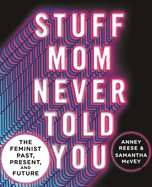ALA Annual: Newbery/Caldecott/Legacy Banquet
"Access to books shouldn't be a gift, it should be a given," said Doug Salati, 2023 Caldecott winner for Hot Dog, which he also wrote. His statement summarized the overall theme of the American Library Association's annual conference, held in Chicago over the weekend.
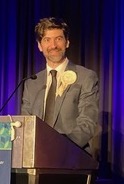 |
|
| Doug Salati | |
Salati's mother, a public school teacher, brought home to him and his sister the works of luminaries such as Tomie dePaola, Trina Schart Hyman, Ed Young, John Steptoe, Anita Lobel, and Maurice Sendak. "Being read to is a fundamental joy that many of us never grow out of," said Salati. "The gift of storytelling," was the first of five gifts on which he focused his acceptance speech at the 2023 Newbery/Caldecott/Legacy banquet on Sunday night.
Hot Dog took shape over 10 years of "growth, change, and transition," said Salati. He received his second gift, the gift of space, after he finished graduate school a decade ago and was offered a Sendak Fellowship, where he overlooked the Green Mountains of Vermont; he shed the stress of city life and began a story about a dog he'd met on the beach. He bonded with dePaola, a visiting artist to the Sendak fellows, over Salati's appreciation of the work of Trina Schart Hyman, dePaola's close friend. They stayed in touch, and dePaola even offered Salati the chance to illustrate one of his manuscripts.
At the fellowship, Salati received his third gift, the gift of process, when Lynn Caponera asked him to help catalogue Sendak's work. "Here was tangible evidence that an artist does not spring forth, fully formed," Salati said. Great work takes many drafts, many dummies, daily dedication, and lifelong passion. Salati once dreamed of living in "a hollowed-out tree like Sam Gribley" in Jean Craighead George's My Side of the Mountain because "I wasn't quite sure how or where I'd fit in," he said. Instead, he moved to New York City, where he found his fourth gift: community. He studied with Rachael Cole and Sara Varon at the School of Visual Arts, and later moved into a shared studio with Brian Floca, Sophie Blackall, and Rowboat Watkins, guided by "persistent lunch-table inquiries" about his work. His fifth is the gift of relationships, which also includes his editor at Knopf Books for Young Readers, Rotem Moskovich, who saw Salati's graduate exhibition and planted the seeds for Hot Dog.
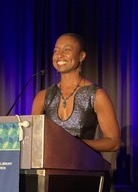 |
|
| Amina Luqman-Dawson | |
"Freewater is a work of restoration," said 2023 Newbery Medalist Amina Luqman-Dawson about her first book for young people. When she thinks about how it will be received, "I think less about book bans and more about the people I had in mind while writing it." She thanked Alexandra Hightower, her editor at jimmy patterson books/Little, Brown Books for Young Readers, the first African American editor to have edited a Newbery Medal-winning book, and to We Need Diverse Books, which brought together Luqman-Dawson and Kathi Appelt as a fellow author and mentor, and now, a friend.
Luqman-Dawson spoke of the librarian at the Leland R. Weaver Library in South Gate, Calif., who taught her that "I had the power to read anything I wanted. What I read was my choosing. That's what makes the library sacred." Today she sees literary voices, "especially Black and LGBTQIA+ voices, being erased from our libraries and classrooms," a continuation of past efforts. "Slavery's engineers and supporters were resolute and complete in having the voices of enslaved African men, women and children erased from history." Yet the stories live on, residing within the families of their descendants through oral traditions, she said: "Each word, each story is precious."
People ask Luqman-Dawson why she didn't write Freewater as a nonfiction book--the fascinating story of the maroons, enslaved people who escaped and lived in secret in the wilderness. "I'm really in the business of restoration," she replies. "In Freewater, it is the children who do that work. They create a bridge across the disconnected space." Her hope is "for the nation's enslaved ancestors to find a place in our historical imagination." In a place where, "when we think of them, we know to be inspired and awed by their role in history."
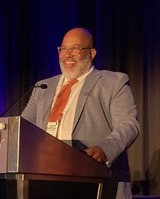 |
|
| James E. Ransome | |
"I'm not done yet," said 2023 Legacy Award-winner James E. Ransome. "I have plans, ideas, and contracts, and God willing, I'll be around a lot longer." Ransome's first book was edited by Dick Jackson, Do Like Kyla, with text by Angela Johnson(Orchard Books), "and it's still in print after 33 years."
Ransome spoke of the power of books to connect us, not just as book creators, book champions, and readers, but also through place and imagination. Ransome recently attended the 31st African American children's Book Fair in Philadelphia, where he met Luqman-Dawson. Ransome grew up in Rich Square, N.C., not far from where Freewater is set, a place he had discovered through Whitfield Lovell's installation SANCTUARY: The Great Dismal Swamp. Ransome grew up with his grandmother, who couldn't drive, read, or write, but who always found enough to keep her grandson in comic books, pencils, and paper to study those comics images. As a teen, he moved to New Jersey to live with his mother, and suddenly he had access to eight art teachers, photography and drawing, painting and art classes. His high school art teacher, Charlie Bogasat, encouraged Ransome to attend Pratt Institute, where he met his wife and frequent collaborator, author Lesa Cline-Ransome.
James E. Ransome dedicated his 2023 Legacy Award to Jerry Pinkney. "To be standing here without him is bittersweet," Ransome said. "He opened his heart, his studio, and his family to me." Ransome cited the work of people like Tom Feelings, Virginia Hamilton, and Pinkney as having a powerful influence on him. "Books, reading and art should have an emotional tug on us, and change us or reframe the way we see the world." --Jennifer M. Brown, photos by Siân Gaetano



SHELFAWARENESS.1222.S1.BESTADSWEBINAR.gif)


SHELFAWARENESS.1222.T1.BESTADSWEBINAR.gif)
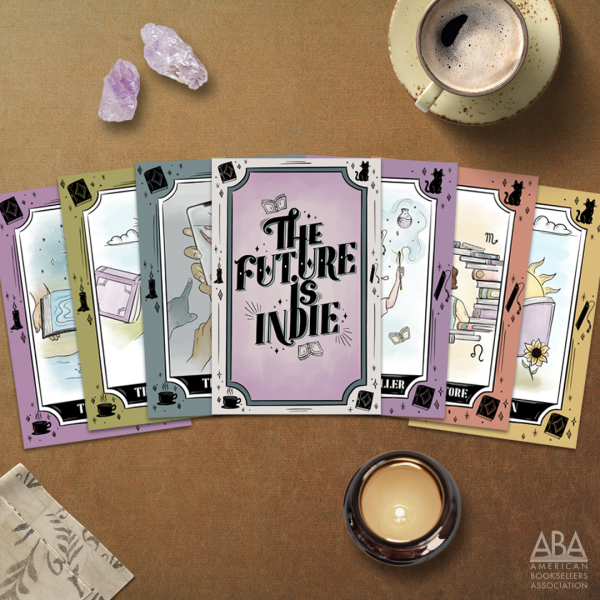 A highlight of the summer campaign is a mini-Oracle deck of six tarot cards (r.), which can be used to do "fun and informed bookish readings as they relate to the indie bookstore experience from a reader's perspective. The card readings range from engaging one's curiosity, to fighting temptation, to receiving personal recommendations." The campaign also includes digital assets, printable posters, suggested copy, as well as "The Future Is Indie" T-shirts available from Bonfire.
A highlight of the summer campaign is a mini-Oracle deck of six tarot cards (r.), which can be used to do "fun and informed bookish readings as they relate to the indie bookstore experience from a reader's perspective. The card readings range from engaging one's curiosity, to fighting temptation, to receiving personal recommendations." The campaign also includes digital assets, printable posters, suggested copy, as well as "The Future Is Indie" T-shirts available from Bonfire. In response to
In response to 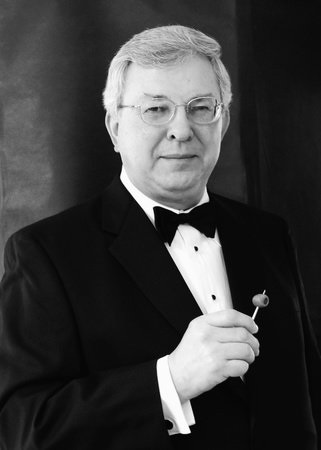
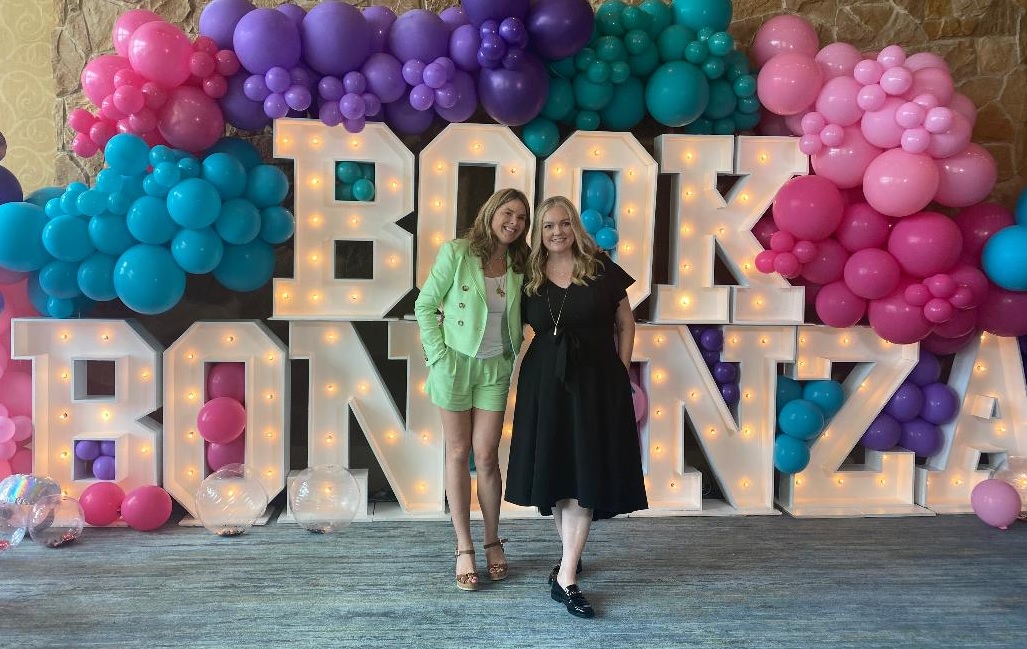
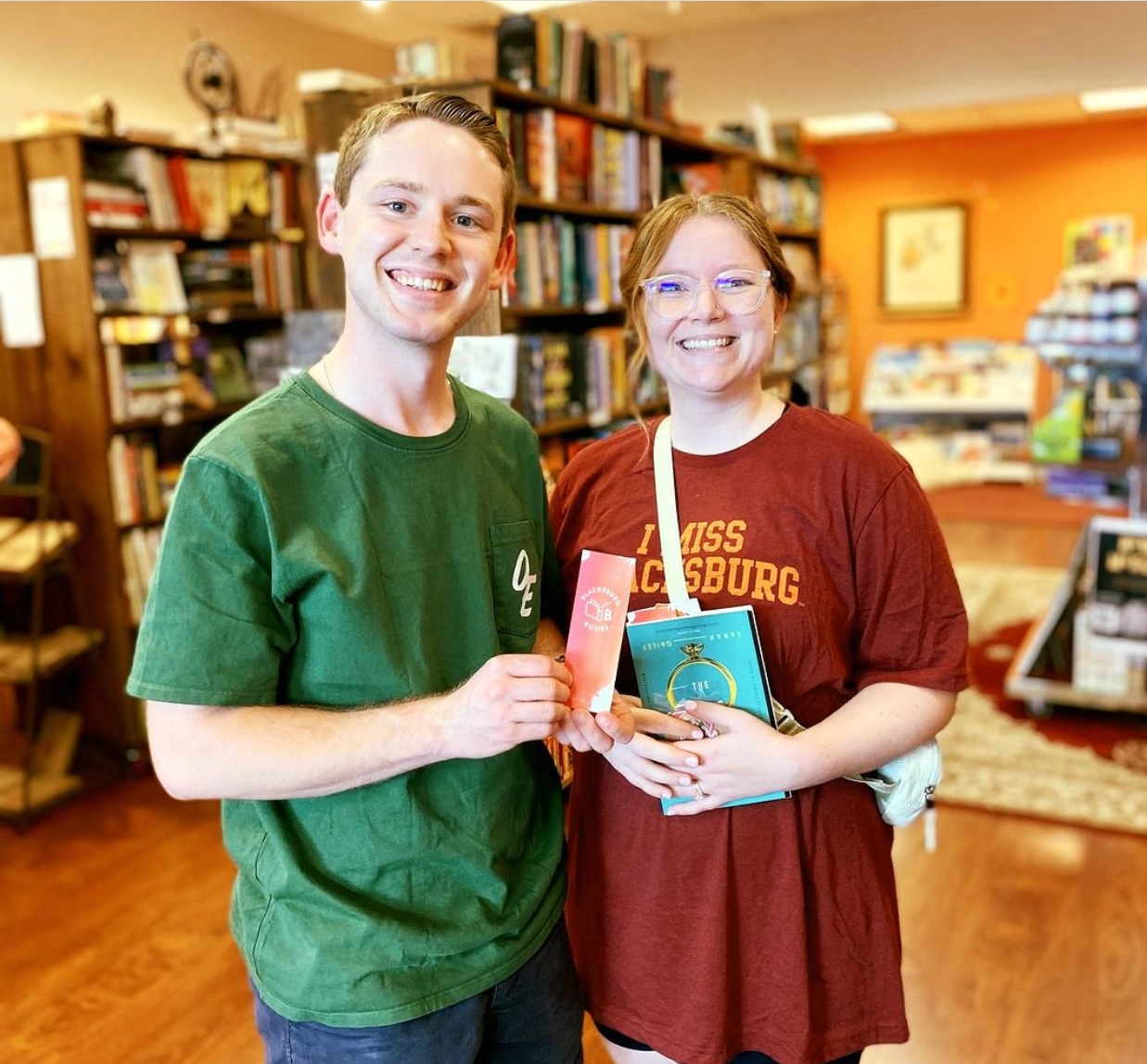 "This is Bill and Kelly. Bill and Kelly got married today and
"This is Bill and Kelly. Bill and Kelly got married today and 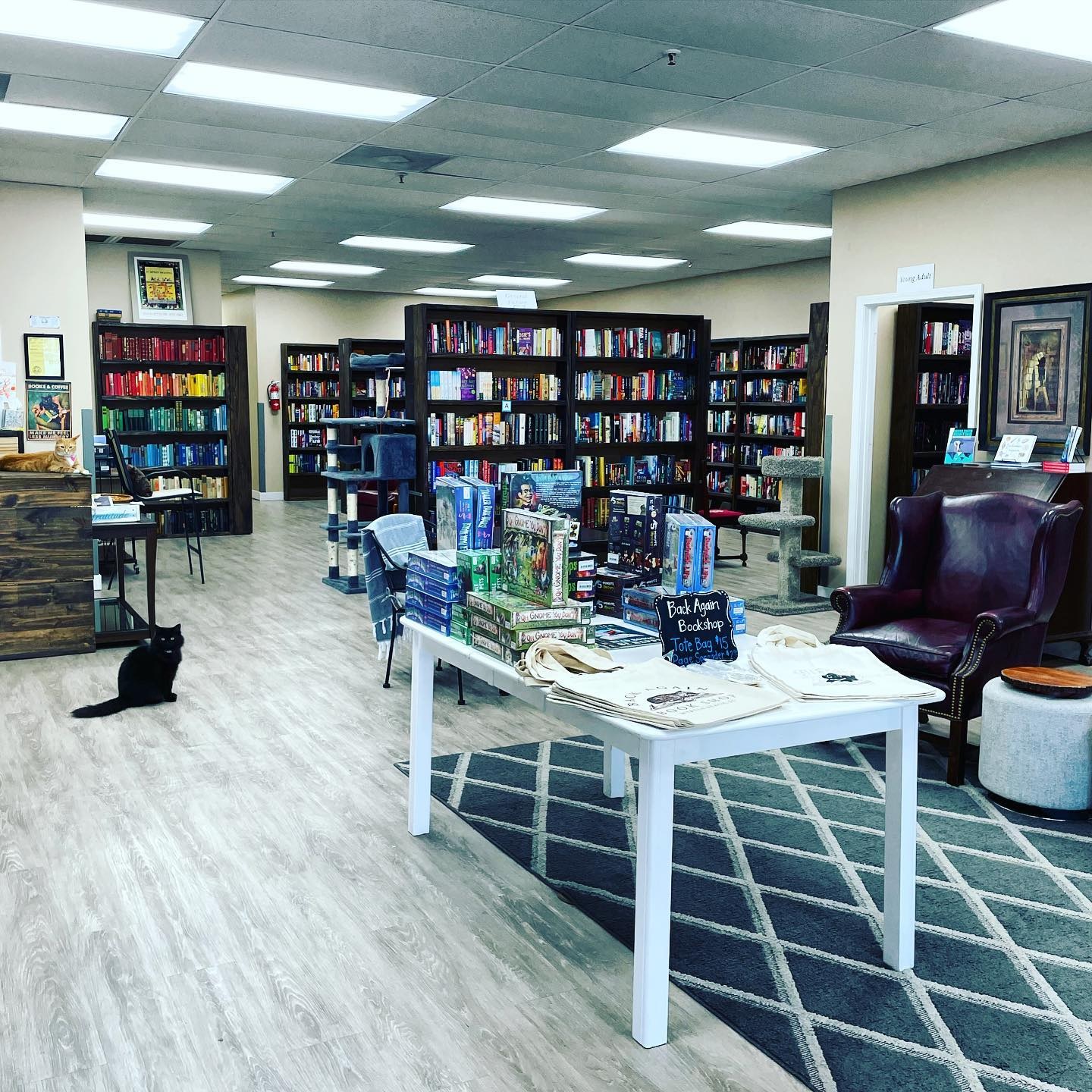 "This is
"This is 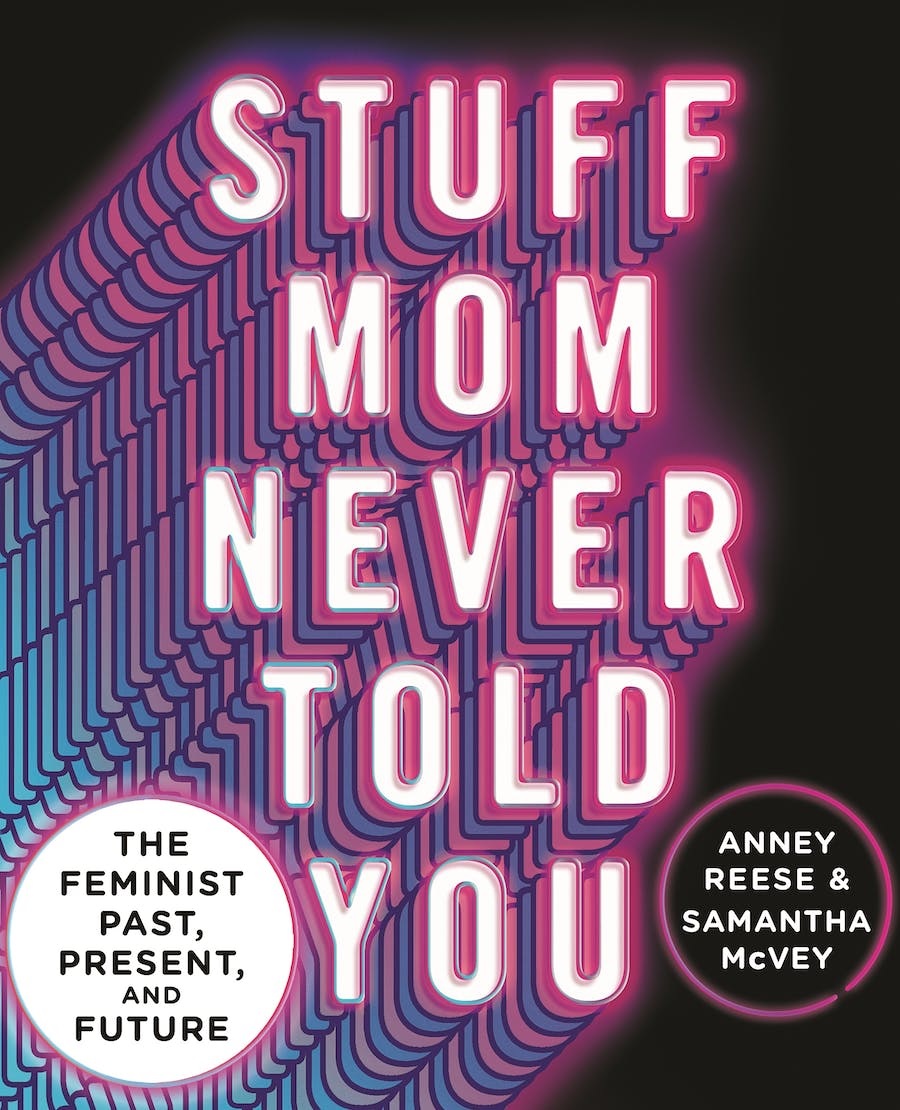 A well-read feminist reviewer of a certain age who encounters Stuff Mom Never Told You: The Feminist Past, Present, and Future may find herself sheepishly wondering: How much can she learn about feminism from a couple of young women? Answer: lots, if those women are Anney Reese and Samantha McVey, cohosts of iHeartMedia's intersectional feminism-minded podcast Stuff Mom Never Told You. Their book of this name is as elucidating as it is galvanizing.
A well-read feminist reviewer of a certain age who encounters Stuff Mom Never Told You: The Feminist Past, Present, and Future may find herself sheepishly wondering: How much can she learn about feminism from a couple of young women? Answer: lots, if those women are Anney Reese and Samantha McVey, cohosts of iHeartMedia's intersectional feminism-minded podcast Stuff Mom Never Told You. Their book of this name is as elucidating as it is galvanizing.